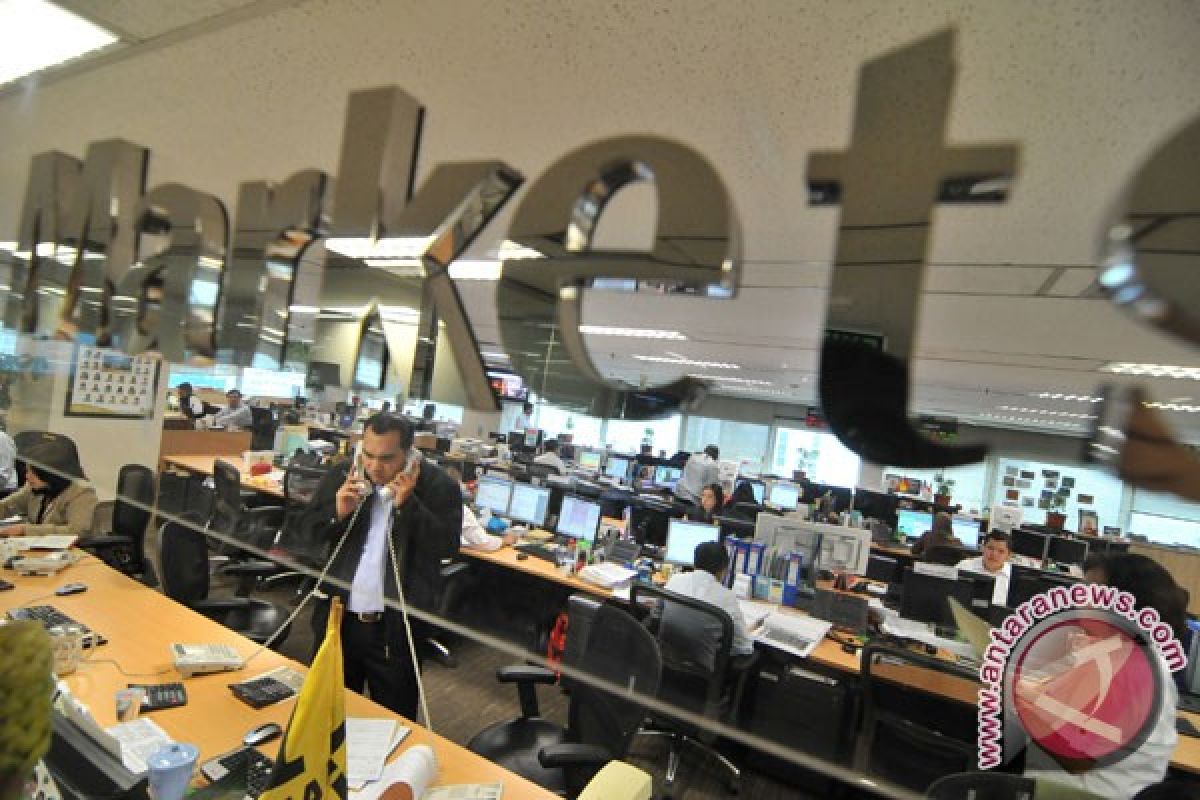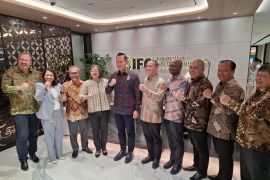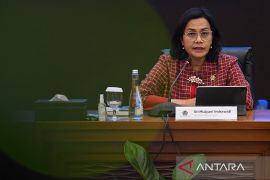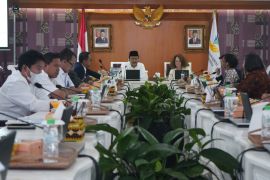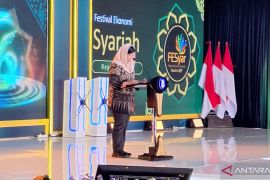The plan, therefore, is still in line with the government policy to control financing with foreign debts.Jakarta (ANTARA News) - The Indonesian government plans to draw Rp45.9 trillion (US$4.88 billion) and pay Rp58.4 trillion in foreign debt installments in 2013 or a deficit of Rp19.5 trillion in foreign loan account.
The foreign loans will include Rp6.5 trillion in program loans and Rp39.4 trillion in project loans, according to a financial note and draft state budget for 2013.
The loan funds will include Rp29.2 trillion to finance spending by ministries and other government agencies, Rp3.2 trillion to be given as grants for regional administrations and Rp7 trillion to be lent out to state companies and regional administrations.
The plan to draw the loans has gone through process of financing plan and the amount is still below the maximum level set for foreign loans.
The plan, therefore, is still in line with the government policy to control financing with foreign debts.
The World Bank and the Asian Development Bank are expected to be among the main providers of program loans as a source of cash financing. However, financing from the two agencies is restricted by "single country limit/country lending limit".
Apart from program loans, the government still relies on project loans, which are expected to come from multilateral agencies including the World Bank and ADB and bilateral agencies like those from Japan and South Korea, and export credit as well as commercial credit providers.
In 2013, most of loans in export and commercial credits would be used to finance procurement of main military equipment and special materials of the police to build up a "minimum essential force".
The process will take longer time for project loan procurement than for program loans. Procurement of loans in export and commercial credits is regulated with different mechanisms.
Procurement of export credits is in one package with goods or service procurement by the ministries and other government agencies, while procurement of commercial credits is separate from the procurement of goods or services .
Procurement of loans in commercial credits is made by the finance ministry through process of selection which is expected to carry competitive cost and risk Meanwhile, 98 percent of the Rp7 trillion foreign loans to be lent out to state companies and regional administrations will be used to finance various projects of state companies with the remaining two percent for projects of regional administrations.
In a bid to optimize the management of foreign loans the lending out in 2013 would be made selectively with infrastructure projects as the priority mainly for energy projects, floods control and drinking water projects.
Cost efficiency will be improved by simplifying the process of discussion and agreement on loans and other procedures and punctuality in meeting repayment deadlines.
In 2012, state electricity company PT PLN (Persero) is the largest user of foreign loans lent out by the government. In 2013 PLN will have a share of Rp5.5 trillion or 79.3 percent of the total foreign loans to be lent out by the government.
PLN will use the fund to finance vital electricity infrastructure projects such as Java-Bali Power Sector Restructuring And Strengthening Project", "Renewable Energy Development Sector Project, Power Transmission Improvement Sector Project, Ulubelu Geothermal Power Plant Project, etc.
Other state companies expected to have a share of the foreign loans to be lent out by the government include PT Sarana Multi Infrastruktur (SMI) and oil and gas company PT Pertamina.
Among the regional administrations to receive a portion of the loan funds in 2013 include the Bogor city administration, Kapuas regency, Muara Enim regency and Jakarta city administration.
The foreign loans to be lent out to the regional administrations will be used mainly to finance vital projects such as Urban Water Supply And Sanitation Project (UWSSP) and Jakarta Urban Flood Mitigation Project (JUFMP)/ Jakarta Emergency Dredging Initiative (JEDI).
(Uu.AS/H-ASG/A014)
Editor: Priyambodo RH
Copyright © ANTARA 2012
